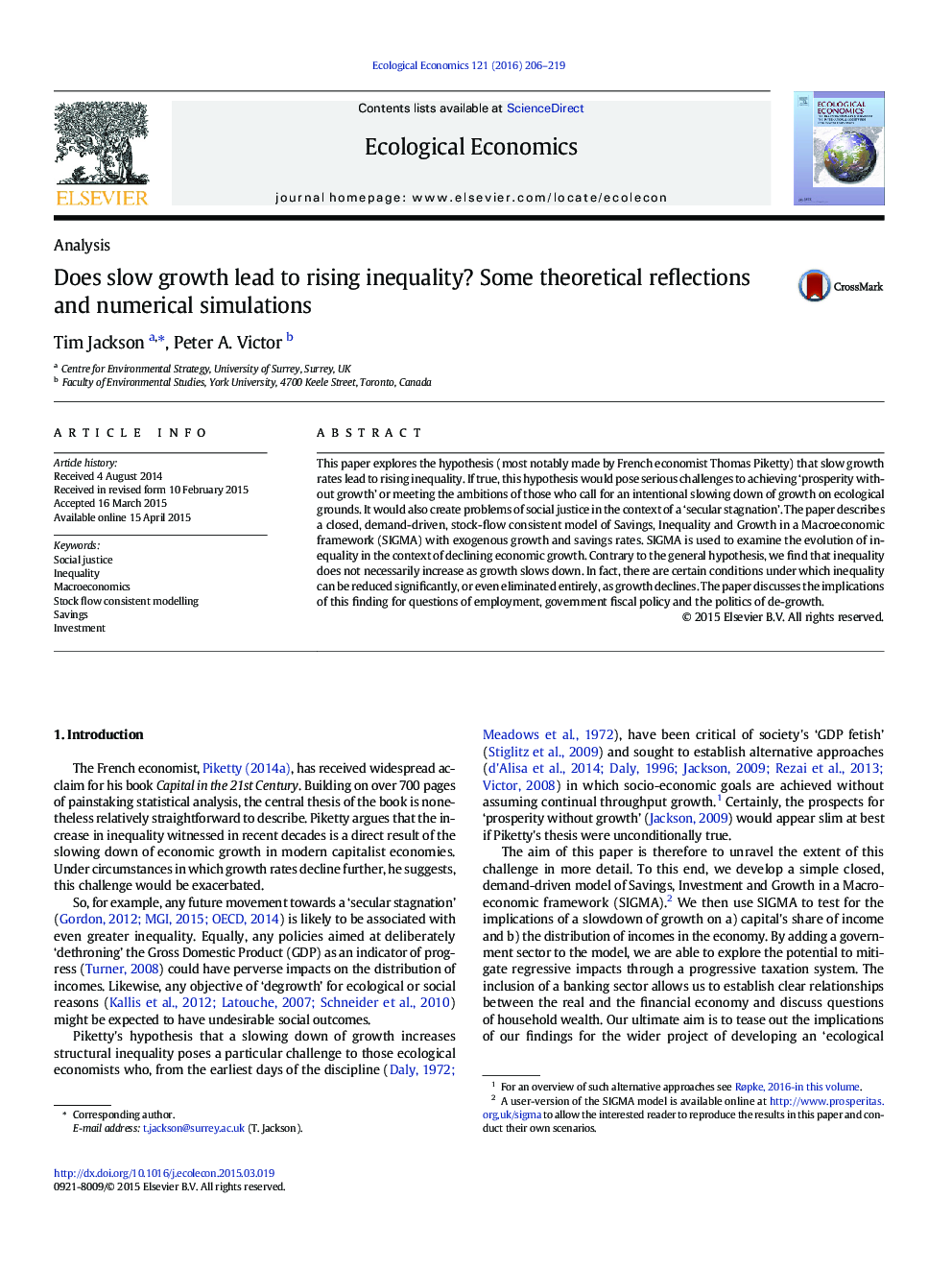| کد مقاله | کد نشریه | سال انتشار | مقاله انگلیسی | نسخه تمام متن |
|---|---|---|---|---|
| 5049069 | 1476358 | 2016 | 14 صفحه PDF | دانلود رایگان |
- Presents a stock-flow consistent macroeconomic model of savings, inequality and growth (SIGMA)
- Tests Piketty's hypothesis that declining growth rates lead to rising inequality
- Confirms rising capital shares for income when substitutability of capital for labour is high
- Illustrates how inequality declines when substitutability of capital for labour is low
- Shows how inequality can be tamed through a combination of measures to protect wage labour
This paper explores the hypothesis (most notably made by French economist Thomas Piketty) that slow growth rates lead to rising inequality. If true, this hypothesis would pose serious challenges to achieving 'prosperity without growth' or meeting the ambitions of those who call for an intentional slowing down of growth on ecological grounds. It would also create problems of social justice in the context of a 'secular stagnation'. The paper describes a closed, demand-driven, stock-flow consistent model of Savings, Inequality and Growth in a Macroeconomic framework (SIGMA) with exogenous growth and savings rates. SIGMA is used to examine the evolution of inequality in the context of declining economic growth. Contrary to the general hypothesis, we find that inequality does not necessarily increase as growth slows down. In fact, there are certain conditions under which inequality can be reduced significantly, or even eliminated entirely, as growth declines. The paper discusses the implications of this finding for questions of employment, government fiscal policy and the politics of de-growth.
Journal: Ecological Economics - Volume 121, January 2016, Pages 206-219
